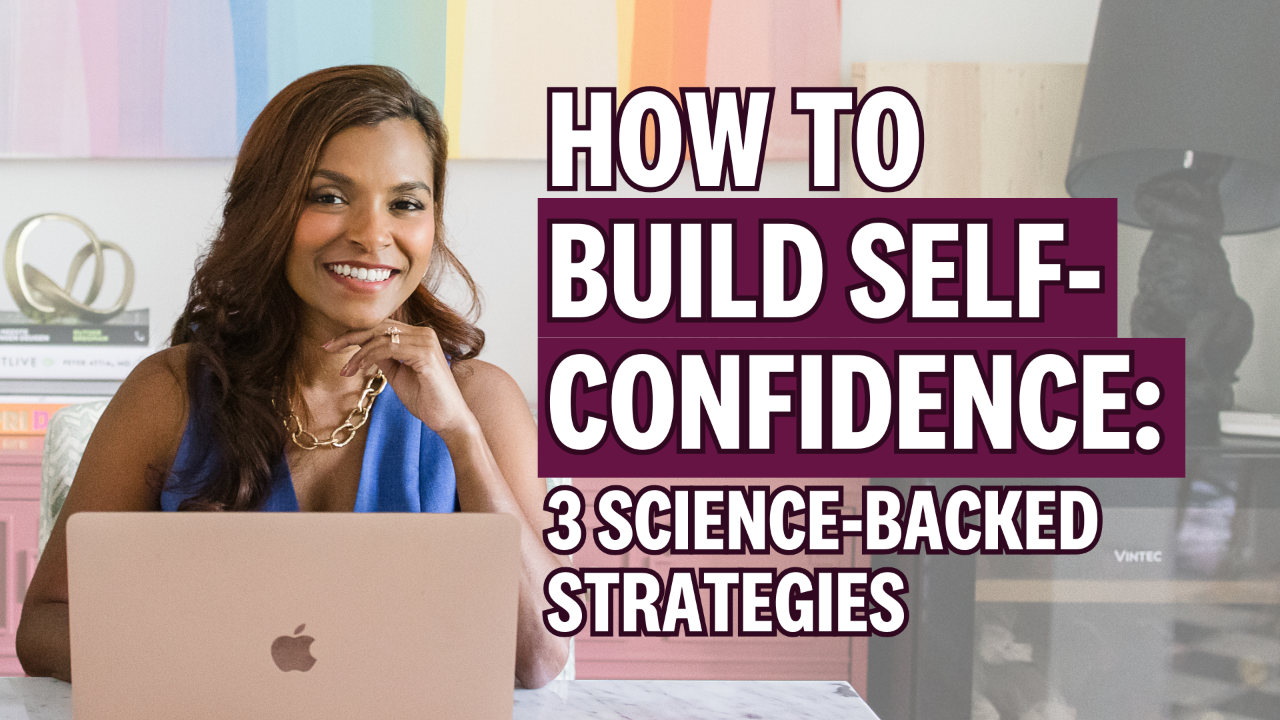💬 How to Increase Your Self-Confidence
Nov 13, 2025
How do you build real, lasting self-confidence? Confidence grows when your brain receives repeated proof that you can trust yourself. You build it through self-talk, repetition, and small daily actions that shift your neural pathways.
Why Confidence Is Something You Build
Confidence isn’t a personality trait. It’s a skill you strengthen over time.
Neuroscience shows that confidence develops when your brain gets consistent evidence that you are capable, adaptable, and safe. This means you don’t need to feel ready first. You create confidence through patterns, not one-off moments.
Here are three practical, science-backed ways to strengthen your confidence every day.
1. Speak to Yourself Like a Best Friend
Your inner voice shapes your identity more than your circumstances do.
Ask yourself: would I talk to someone I love the way I talk to myself?
Replace self-criticism with supportive internal language like:
“You’re learning.”
“You can do tough things.”
“You’re figuring it out.”
Before big meetings, I used to stand in front of the mirror, look myself in the eye, and remind myself who I am. It felt strange the first few times, but it shifted how I showed up. The way you speak to yourself sets the foundation for your confidence.
2. Use Positive Affirmations and Say Them Out Loud
Confidence begins with belief, and belief grows through repetition.
When you say affirming words out loud, your brain starts linking your voice with safety and self-trust. Neural pathways adapt to whatever you repeat consistently.
Some of the affirmations that helped me were:
“You’ve done hard things before.”
“You’re working on yourself.”
“You’ve got this.”
You don’t need to feel confident to speak confidently. Your words help create the feeling.
3. Give Your Brain Small Bits of Evidence
Real confidence doesn’t come from thinking. It comes from doing.
Every time you take a small step outside your comfort zone, your brain registers, “I can do this.” That evidence compounds.
Small confidence-building actions look like:
Saying yes to a new opportunity.
Speaking up once more in a meeting.
Trying something you’ve been avoiding.
Every action becomes proof. The more proof your brain has, the more confidence you feel.

Final Thoughts: Confidence Is a Practice
Confidence is not a finish line. It’s a daily relationship with yourself that you strengthen through small choices and self-trust.
Start small.
Be gentle with yourself.
Show up for yourself even when it’s uncomfortable.
You don’t need to be perfect to be confident.
You just need to keep proving to yourself that you’re someone you can trust.
Rooting for you,
Angel Kilian
Founder | Career inFocus
Stay connected!
SIGN UP WITH YOUR EMAIL ADDRESS TO RECEIVE NEWS AND UPDATES.


